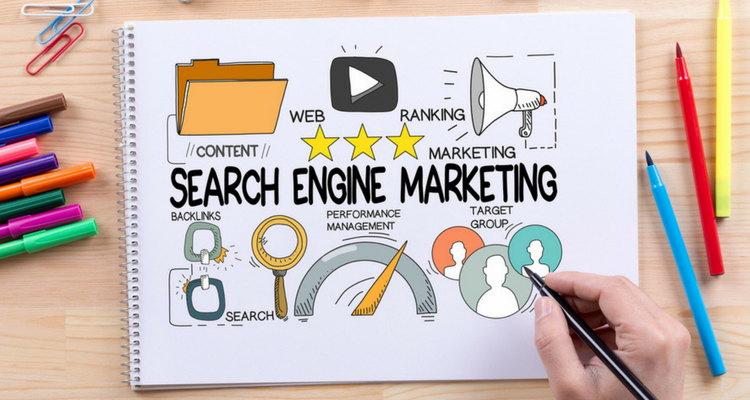Did last September’s Helpful Content Update from Google feel not so helpful for your website? I’ve heard from many people who saw a drop in their organic search results and site traffic after the update. The good news is that there are easy ways to improve your site if it is affected by the helpful content update.
In this article, I’ll explain the HCU, why it was put in place, HCU best practices, and how to write content that ranks on Google now and in the long run.
How The Helpful Content Update Works
What Does This Update Mean For My Website?
If your site is filled with generic, spun, keyword-stuffed content, you’ll notice poor site performance and a reduction in organic search traffic.
Why Was The Helpful Content Rolled Out?
Google’s helpful content update was rolled out to ensure valuable, original content is prioritised in search results. According to Google, the Helpful Content Update was intended to help “ensure people see more original, helpful content written by people, for people, in search results.”
Helpful Content As A Sitewide Factor
Google’s helpful content update is a sitewide classification, so pruning unhelpful content from your entire site will genuinely help for SEO.
What Kind of Content Does Google Consider Helpful?
Helpful Vs Unhelpful Content
The biggest thing I tell my clients about creating helpful content is “people first”. Along with people-first content, Google’s helpful content update prioritises sites that use SEO best practices. Helpful content will be valuable, written for a specific audience, and unique.
Examples of unhelpful content include:
- Articles stuffed with keywords
- Spun content
- AI-generated content
- Generic content that can be found elsewhere
What Makes Content Helpful?
Here’s a quick way to remember what makes content helpful: E-E-A-T (Experience, Expertise, Authority, Trustworthiness).
Writing content with these factors in mind ensures that your readers will know you are an expert on a topic and help Google promote your site in search results.
Google HCU Best Practices To Create Helpful Content
Here are the 7 tips I rely on myself and share with clients to improve site performance and boost traffic and search results.
1. Get To The Point
If you are writing an article about a particular question or topic, try to answer the question within the first sentence or two.
While you want to be straightforward and concise, steer clear of writing blog posts that are too short. I always aim for a minimum of 800 words up to 2,500 words.
The ultimate goal when creating content is preventing readers from leaving your site to find the information they are seeking on another site. When addressing a topic, ensure you cover it completely and accurately to prevent further searches.
2. Demonstrate Authority With First-Hand Experience
Writing in the first person singular (I, me, myself) will increase the chance of Google recognizing your content as helpful.
In addition, include helpful stories, and firsthand experiences, or demonstrate your expertise in all of your content. I reference my recent results, case studies and trends I noticed in my own content for added value.
If you are an agency owner like me working with clients, you can also ask your own clients for insight as they will have the domain knowledge necessary to demonstrate this.
For example, I interviewed a flooring client of mine for expert advice and information, and used his quotes interspersed with his SEO blogging strategy. This strategy gave his site a tremendous boost, and also allowed us to achieve SEMRush Australia’s Best Blog award in 2023.
3. Add Genuine Value
Have you ever read a website article that sounded similar to several others you had already looked at?
This is a common occurrence. Your website content is competing against hundreds of other articles if not thousands. This is especially true considering the rise in AI-generated content.
When you write content, make a point to bring something new to the table that readers won’t find in other articles. I do this by:
- Answering questions that haven’t been addressed in other articles
- Sharing unique stories or industry insights
- Adding media (pictures, videos, charts)
- Using case studies
4. Stick To Your Area Of Expertise
I remember helping a client a few years ago who had an underperforming site and was frustrated that all her efforts weren’t resulting in increased site traffic. The site owner was cranking out tons of content but not performing well in search results.
After evaluating the site, one of the first red flags I noticed was that it was all over the place in terms of topics and content. This site had parenting tips, recipes, fitness tips, skincare tips — you name it.
While the author of the site assumed that covering a wide range of topics would increase her likelihood of showing up in search results, it was hurting her site’s performance.
Now more than ever, Google wants to see a clear niche. Ranking on Google means being an expert on one subject as opposed to trying to cover a variety of topics, especially unrelated ones.
Take a quick look at your site and ask yourself these questions:
- Who is my target audience?
- What am I an expert in?
- What do my readers value?
- How can I help my readers?
- What is the primary focus of my website?
- Is my niche clear or is my content covering a vast range of topics?
5. Write For Humans First, Not Google
If you write your content with the sole focus of “What does Google want me to write?”, you’ll probably end up with a boring, generic article that offers minimal value to your readers.
My first rule in content creation is to write for humans first and Google second.
Don’t get so wrapped up in rules and algorithms and SEO best practices that you fail to connect with your audience.
Remember the days of keyword stuffing, when websites would cram keywords into articles, even if it didn’t make sense? I was never a fan of that, and Google eventually caught on to this practice.
Writing genuine content intended for your target audience is a fail-proof way to help a site stand out and build trust with readers.
Google has its own guidelines and assessment questions to help you make sure that it falls in line with what Google considers “helpful” and “people-first” from their documentation.
6. Remove Unhelpful Content
Google’s helpful content update is a sitewide classification, so pruning unhelpful content in your site genuinely helps for SEO (Source: Google Search Central).
Evaluate your entire site, including blog posts, product pages, service pages, About Me sections, and the homepage. Ensure all content is concise, authoritative, and unique.
7. Share Trustworthy Information
Provide accurate content and only link to credible sources such as legal papers, academic studies, or published research.
Along with creating valuable, accurate content and trusted sources, consider the user experience for your site. Make sure your website is secure and loads quickly.
FAQs On Helpful Content
How Does Google Determine Helpfulness?
Google determines helpfulness using several E-E-A-T principles:
- Experience — Unique content with fresh perspectives, valuable information, and content that can’t be found in other articles
- Expertise — Firsthand knowledge and insights, proven industry experience
- Authoritativeness — Content written in first person by a leader in the industry
- Trustworthiness — Content published on a reputable website that only sites credible sources
Will Google Let Me Know If My Site Is Deemed Unhelpful?
No, Google will not inform you if your site is penalised. Rather, you may notice a decrease in organic search visibility.
What If Google’s Classifier Determines My Website To Be Unhelpful?
If your site is penalised by Google as unhelpful, you’ll likely notice poor SEO performance, decreased site traffic, and poor search result visibility.
What Can I Do If My Website Is Affected?
Here are a few practical tips for reviving your website if it was affected by the Helpful Content Update:
- Add at least one original image, video, or infographic to each blog post to set your site apart from AI-generated content
- Write in the first person singular (“I”, “Me”, “Myself”)
- Include fresh or unique information, personal stories, and firsthand knowledge or insights throughout your content
- Offer information that can’t be found in other existing articles or answer questions that haven’t been covered elsewhere
- Demonstrate industry authority
- Covers topics thoroughly to prevent your readers from leaving your article to find a more comprehensive article that gives them the answer they were looking for
- You may even like to try AI tools to evaluate your content and make sure it isn’t missing important information about your topic
Will Google Roll Back The Helpful Content Update?
According to John Mueller of Google Search Central, Google will not roll back the helpful content update.
Final Thoughts
Google’s digital landscape is always changing. Last year’s HCU means Google wants to see content that offers fresh information, genuine value, first-person insight and expertise, and a reputable site.
If you’re feeling overwhelmed by Google’s harder content signals, I’ll simplify it into three key points to remember:
- Write with your target audience in mind, not search engines
- Write in first person singular and aim to include at least one or two insider insights or stories in your content
- Add at least one original image, video, or infographic to your blog posts
- Consider using an AI-assisted tool to evaluate your content and make sure you are thoroughly covering a topic
I hope my article helps you feel confident about reviving your website if it was affected by Google’s Helpful content update.
Enjoyed this technology and digital marketing article? Here are some more articles:
- 10 Deadly Digital Marketing Mistakes and How to Avoid Them
- Local SEO Google My Business Mistakes
- 7 Tips for Creating an Omnipresent Marketing Strategy
- Turn Mentions Of Your Brand Into Juice Passing Links
- The Importance Of Meta Descriptions for SEO
- Strategies To Maximise The Effectiveness Of Backlinks
Brad Russell
Latest posts by Brad Russell (see all)
- What Is The “Helpful Content” Update According To Google? - April 19, 2024








